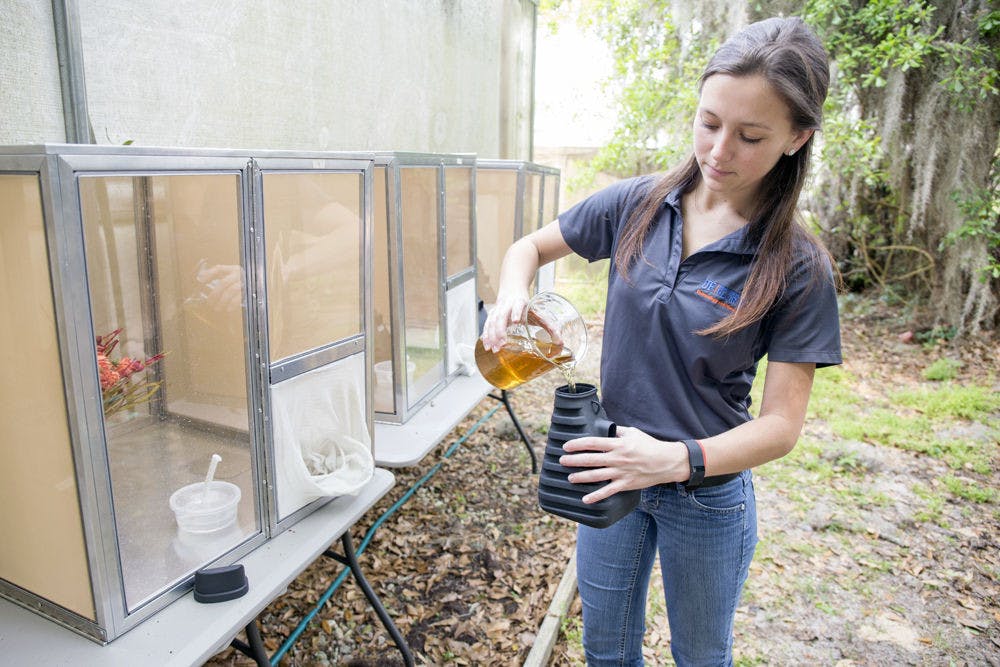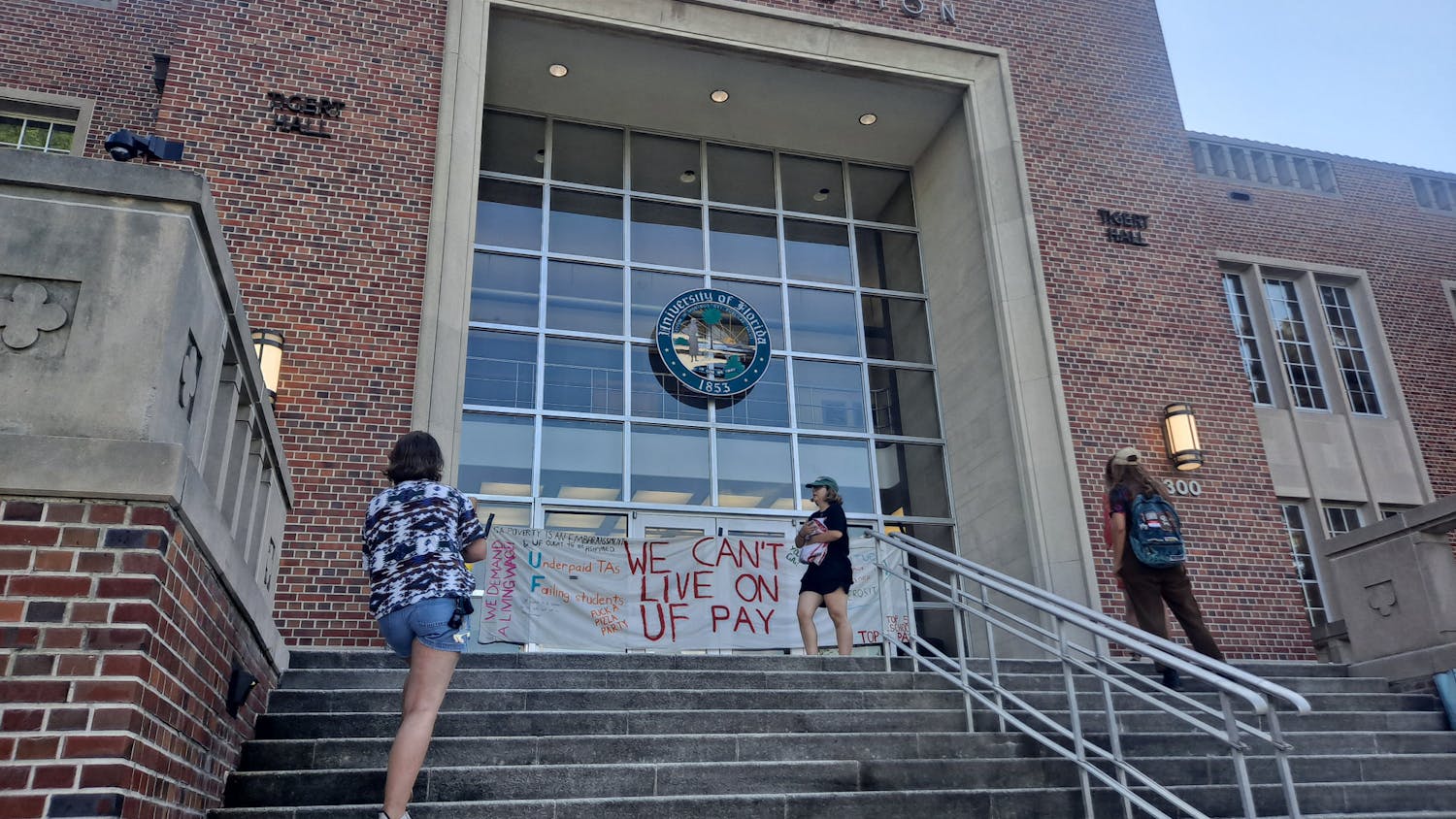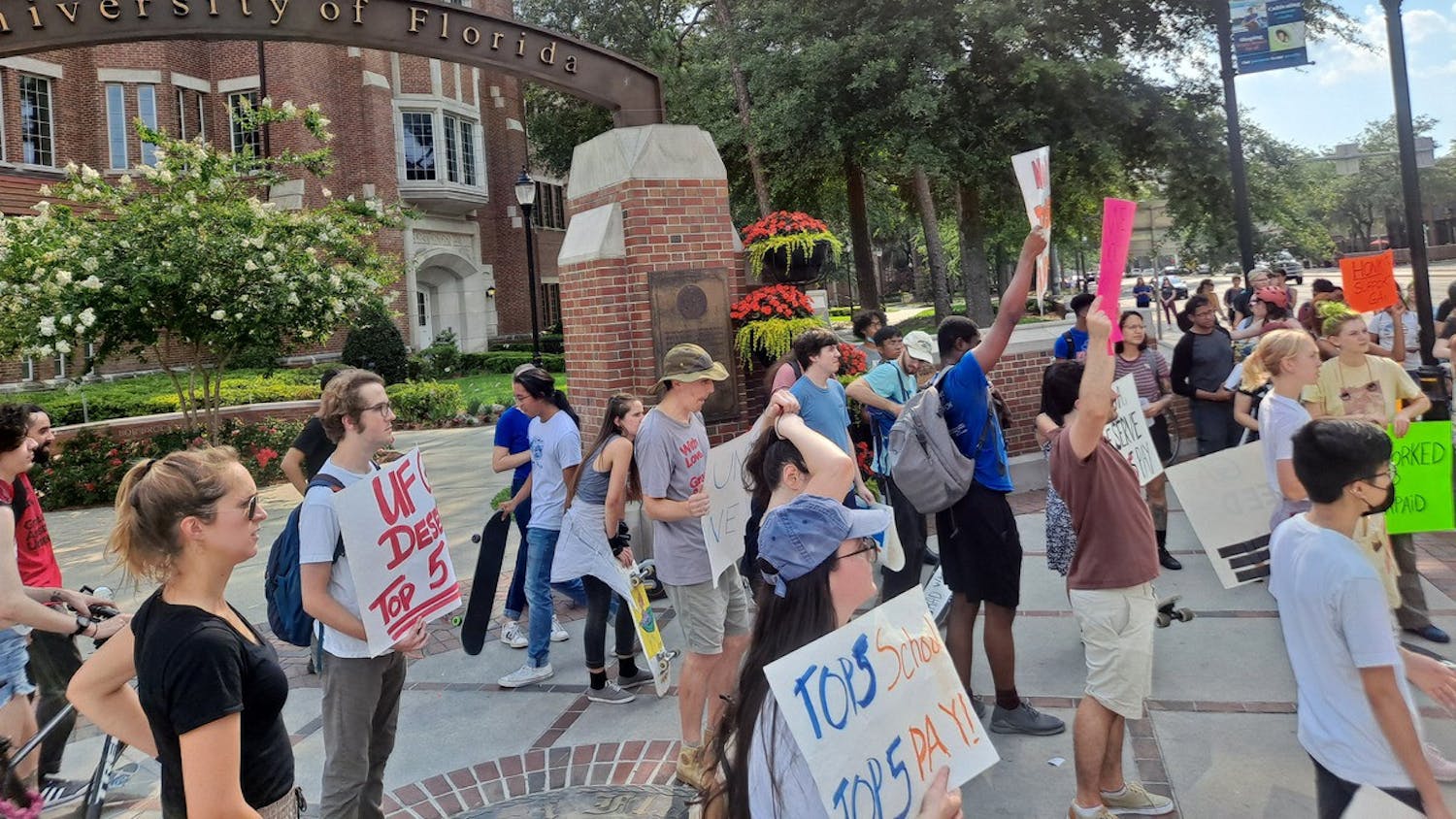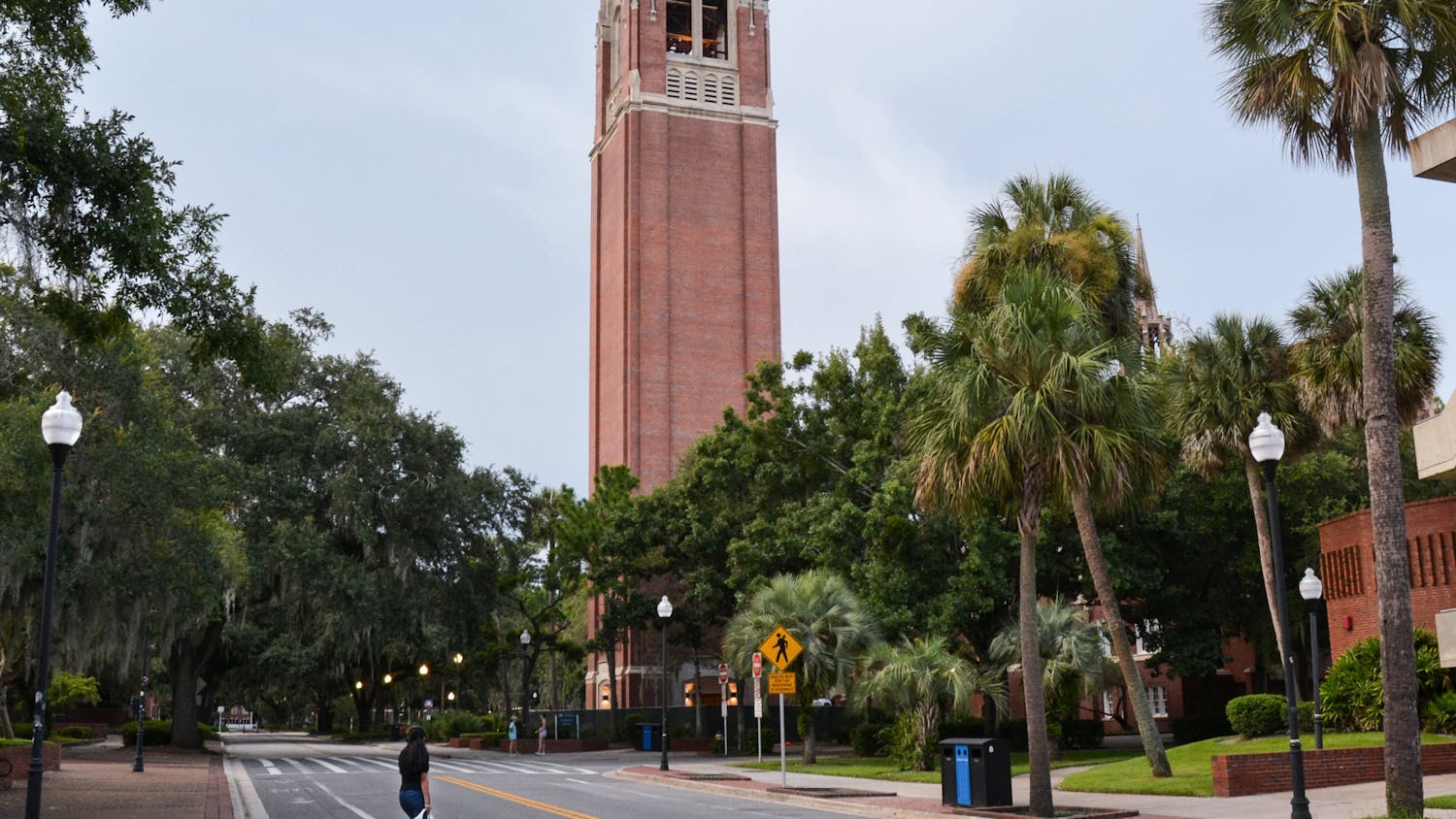Mosquitoes are the nuisance of every summer barbecue, campfire cookout and warm-weather family vacation, but Floridians and tourists may soon find silence where there once was a buzz.
Casey Parker, a 23-year-old UF first-year graduate student on the medical and veterinary entomology track, constructed a trap that could greatly reduce the mosquito population in Florida and around the world after winning a scholarship this month.
The black, pyramid-shaped device can be carried in one hand and hidden in any living space. Parker said it has ridges on the outside to increase surface area and a rough texture on the inside walls, which helps to attract mosquitoes looking to lay eggs.
Parker said two pesticides line the inside walls of the trap. One is targeted at adult mosquitoes, the other at immature mosquitoes. Water is also placed inside the trap because immature mosquitoes need water to develop.
The trap also includes a polymer that releases the pesticides over time. Parker said pesticides, especially spray pesticides like those used in the trap, tend to wear away quickly. This polymer gives the trap a shelf life of at least one year, Parker said.
This trap is specifically targeted at mosquitoes that carry chikungunya and dengue, she said. Both are viruses that can cause fever and other severe symptoms.
Parker said there was a 98 percent mortality rate in adult mosquitoes during tests.
She said she was inspired to create the trap in 2012 when her friend contracted dengue, also known as breakbone fever, in Miami. The disease isn’t common in the U.S.
“In the United States, we are really blessed to not have certain diseases,” Parker said.
Parker won first place and a $2,000 scholarship for her mosquito trap on March 13 at the ONE WORLD competition. It was organized by the UF College of Agricultural and Life Sciences Challenge 2050 Project and the Syngenta Good Growth Plan for students to share ideas and inventions on how to deal with the earth’s growing population.
Parker tested initial designs in Thessaloniki, Greece, with Alexandra Chaskopoulou, a research scientist for the USDA European Biological Control Laboratory, from May to September 2014. Parker said the mosquito that carries dengue and chikungunya is found on every continent except Antarctica, so it was important to make the trap suitable for a global market.
She said it has commercial potential, and she is now pursuing Environmental Protection Agency registration.
“It’s something that you’ll be able to purchase at Wal-Mart or Lowe’s,” she said. “The formulation is not expensive to make.”
Chaskopoulou said she thinks the trap could one day be included in Florida’s $2.66 million proposed budget for mosquito control.
“There’s not one solution that will get rid of the problem, so we try to integrate all of the tools we have to get the best results,” she said. “We want to have an integrated approach.”
Parker said her goal is to make the trap as low-cost as possible and bring it to areas such as South and Central America where it’s common to contract dengue and chikungunya from mosquitoes.
“This is also scary for the United States because we are just north of them,” Parker said. “If this mosquito is there, all it takes is the disease coming over.”
[A version of this story ran on page 5 on 3/30/2015 under the headline “UF grad student’s mosquito trap wins contest, scholarship”]
Casey Parker pours liquid into a container to trap mosquitoes. Parker, a 23-year-old UF master's student, created the device to reduce the mosquito population and stop the spread of diseases.






